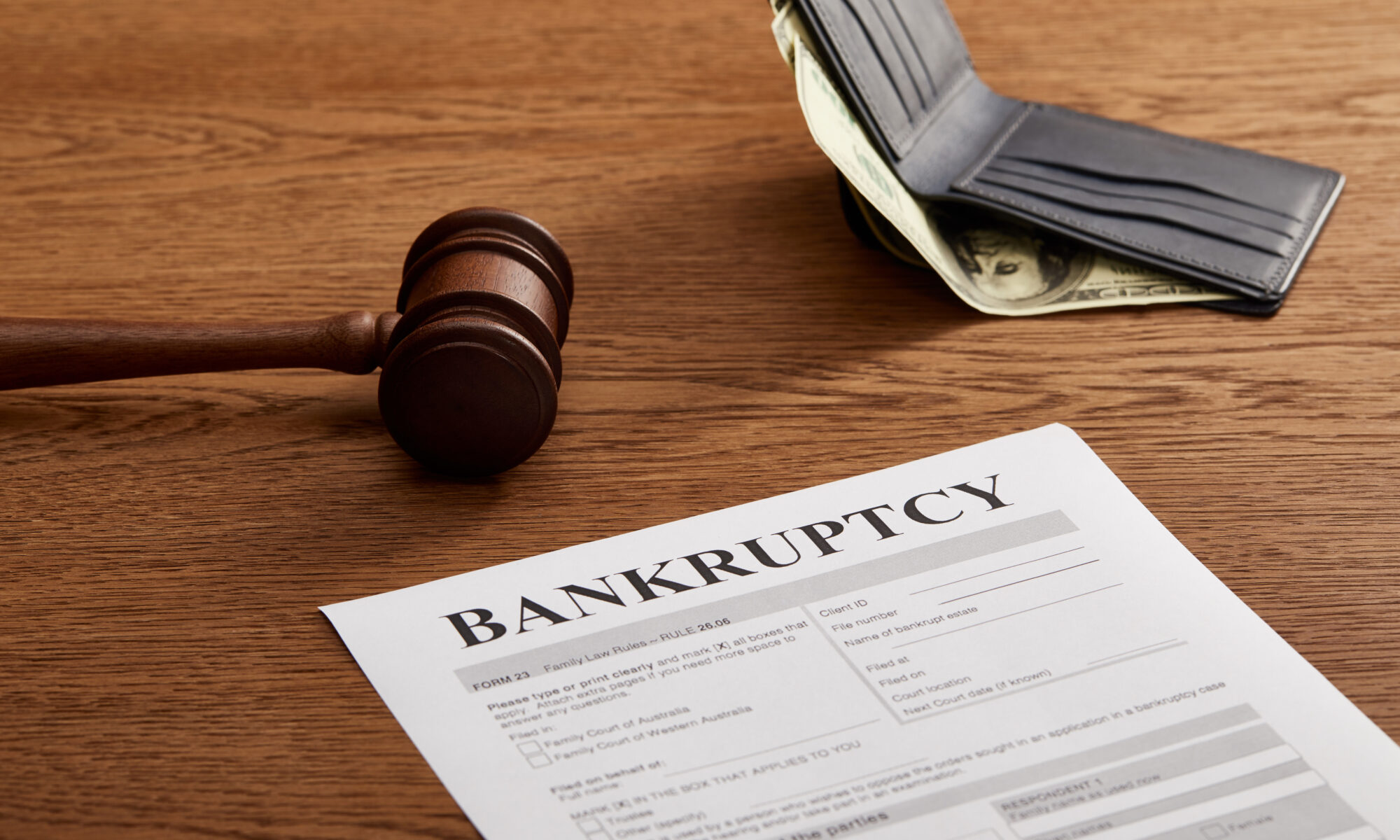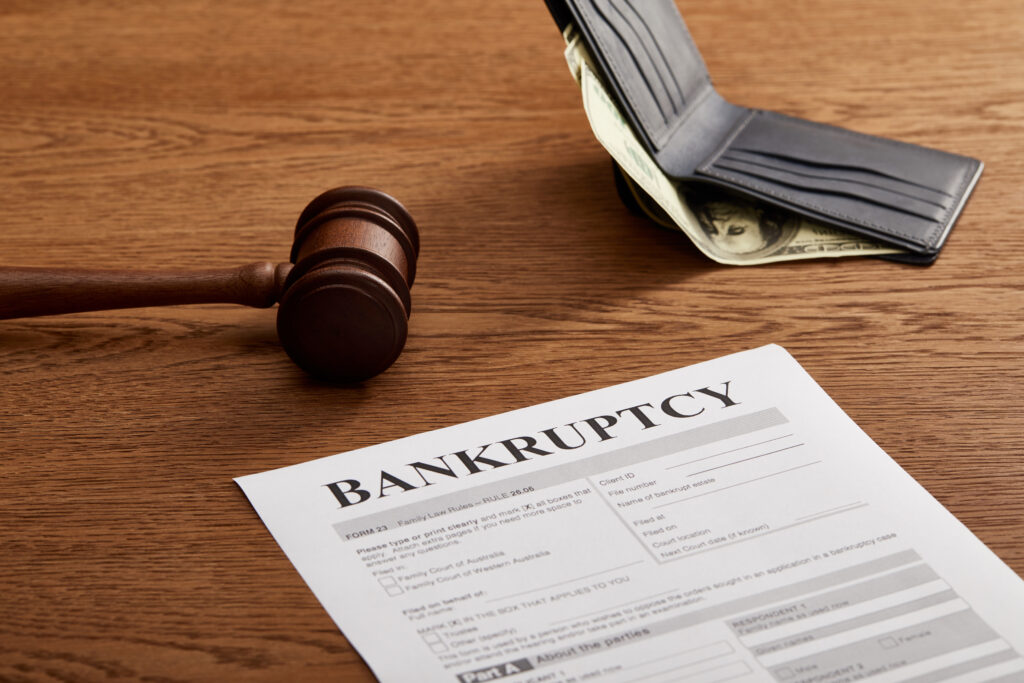This glossary of terms is designed to demystify the bankruptcy process and to provide a brief explanation of some of the most common terminology used in bankruptcy cases.
ASSET CASE– The term used in those rare instances where the chapter 7 trustee has determined that there are indeed some assets that the debtor owns which are not exempt and that can be sold in order to disburse money to the creditors.
ADMINISTER- A $3.00 word which means to sell. You might hear the chapter 7 trustee saying something to the effect of it appears that there may be some assets here which I wish to administer.
ABANDON- At the chapter 7 meeting of creditors you will typically hear a trustee say I am going to abandon that particular asset. As in, your house, cars, etc. have no equity and I have no intention of selling them. Meaning, your stuff is all yours. That’s typically what you will hear in chapter 7 cases.
AUTOMATIC STAY– When you file any type of bankruptcy case the automatic stay goes into effect. As in, an invisible “shield” goes up –sort to speak- which prevents virtually all creditors from employing any type of action in order to get money from you. So all pending lawsuits, garnishments, etc. must immediately cease.
BANKRUPTCY- As noted in the seminal Supreme Court case of Local Loan Co. v. Hunt, 292 U.S. 234, 244 (1934), it is the opportunity for the honest person to get a fresh start!
CHAPTER 20 BANKRUPTCY– The overlooked tactic of filing a chapter 13 bankruptcy shortly after obtaining a chapter 7 discharge. Who says you have to wait 8 years before you can file bankruptcy again?!
CRAMDOWN A.K.A. MOTION TO VALUE COLLATERAL– One of the advantages of a chapter 13 bankruptcy which allowes you to pay back your existing car loan based on the current value of the car instead of being stuck which your existing car loan. The interest rate can be greatly reduced as well.
CREDITORS- The people to whom you owe money.
CONFIRMATION OF THE PLAN- Another way of saying that your chapter 13 case and your proposed payment plan has been approved by the judge.
CONVERTING- The process of converting a bankruptcy cases from one type to another. Most commonly a motion to convert a case from a chapter 13 to a chapter 7 case will be filed with the court.
DOMESTIC SUPPORT OBLIGATION– Just a fancier way of saying alimony or child support. At the meeting of creditors you will be asked if you owe anyone money under a domestic support obligation.
DEBTOR- The individual filing for bankruptcy is referred to as the debtor.
DISCHARGE- The document from the court that essentially says your debts have been erased and you are no longer obligated to pay these pre-bankruptcy incurred debts. In a chapter 7 case it typically takes 100 days for the discharge order to come in.
EXEMPTIONS- The various federal or state laws that exist in every state in order to protect your most basic assets when filing for bankruptcy. For example, in Virginia there is a car exemption designed to protect up to $6,000.00 in equity in a vehicle upon filing for bankruptcy.
FRAUDULENT CONVEYANCE– If you transfer valuable assets out of your name such as cars or houses in anticipation of filing for bankruptcy in a few months you are risking being accused of fraud. Worst case scenario? The bankruptcy court denies your bankruptcy discharge. Ouch!
FEASABILITY TEST– In chapter 13 cases you have to be able to demonstrate to the court that the plan that you are proposing is feasible. In other words, you have enough of an income that will allow you to fund the plan-make your payment that is.
GARNISHMENT- the process utilized by creditors to take from your bank account or wages and one of the biggest reasons that lead people to file for bankruptcy.
HOMESTEAD DEED- The actual document that must be filed with the land records in the county where you reside in order to exempt such assets as your anticipated tax refund or money in your bank account upon filing for bankruptcy. The failure to timely file a homestead deed can result in the trustee taking your assets in a chapter 7 case.
HOUSEHOLD SIZE- Determining the appropriate people that are in your household size can make all the difference between qualifying or not qualifying for a chapter 7 bankruptcy.
INDIVIDUAL BANKRUPTCY FILING- If you are married you have the option of filing individually without your spouse or jointly with your spouse. Only married couples can file jointly. It is still unclear what effect the recent case Supreme Court Case of United States vs. Windsor will have on same sex couples…will they be able to file a joint chapter case just like a heterosexual couple in Virginia? Time will tell.
JUDGEMENTS– If you have been taken to court by a creditor then chances are there is a judgment against you. That is, the court has determined that you indeed legally owe the money. A bankruptcy discharge can make a judgment disappear.
KILOGRAM- Has nothing to do with bankruptcy. But, in case you were wondering, 2.2 pounds equals 1 kilogram.
LIEN STRIPPING– It has nothing to do with taking off your clothes. Rather, it is a tremendous tool that can be utilized only in chapter 13 cases. If your house is severely “upside-down” then you may be able to get rid of/strip your second mortgage or home equity line.
LIQUIDATION TEST– If you have a bunch of equity in your house that you cannot exempt then you will have to file a chapter 13 bankruptcy case. You will then have to pay at least as much in your chapter 13 case to your creditors as would be the case if a chapter 7 trustee were to administer the house in a chapter 7 case.
LIEN AVOIDANCE– If judgments have been entered against you and you own a home, then chances are those judgments have been recorded as liens against your home. Lien avoidance is the process of removing any judgment liens that have been attached to your home.
MOTION FOR RELIEF FROM THE AUTOMATIC STAY– The most utilized motion by creditors most typically in chapter 13 cases. If your fall behind on your mortgage payments after filing a chapter 13 bankruptcy case then the bank will file this motion and ask the court for permission to foreclose on your property despite the fact that you are in bankruptcy.
MEETING OF CREDITORS– A hearing that you have to attend whether your file a chapter 7 bankruptcy or a chapter 13 case. It really ought to be called the meeting with the trustee since in 95% of cases no creditors ever show up.
MEANS TEST- The mathematical “test” that has to be “passed” in order to qualify for a chapter 7 bankruptcy filing. In a chapter 13 cases this mathematical formula is critical in determining the extent of your payments to your unsecured creditors.
NO ASSET CASE– The vast majority of chapter 7 cases are determined to be no asset cases. Meaning, the chapter 7 trustee concludes that the person filing his/her bankruptcy case simply has no significant property that they can seize and sell for the benefit of the creditors.
OBJECTION TO PROOF OF CLAIM– In chapter 13 cases the debtor has the right to file a written objection with the bankruptcy court if they believe that a particular creditor(s) are not entitled to payment or that the amount of money demanded by that creditor is incorrect.
PRIORITY CREDITORS– Those creditors that are permitted to get paid ahead of secured creditors and unsecured creditors. The IRS and the former spouse owed child/spousal support is the most typical priority creditor that you will encounter in chapter 13 bankruptcy cases. They get paid first, prior to everyone else.
PROOF OF CLAIM– The “RSVP” to the party. The document that all creditors must timely file with the bankruptcy court if they wish to get paid in a chapter 13 case or in a chapter 7 asset case.
PRESUMPTION OF ABUSE– If you do not “pass” the means test then a presumption of abuse will arise. Meaning, the court will assume that allowing you to proceed with your chapter 7 bankruptcy case will be tantamount to you abusing the system.
PREFERENCES– Certain payments to creditors within the 90 days preceding your bankruptcy filing or even 1 year preceding the bankruptcy filing (if those payments were made to family members) may be deemed to be preferences and may “undone” by the chapter 7 trustee. The bankruptcy court does not like it when you prefer one creditor over another as you prepare to file for bankruptcy.
PROJECTED DISPOSALE INCOME– In chapter 13 cases the means test will be used to determine your projected disposable income which in turn determines the amount of money that you must pay your unsecured creditors during the 5 years that you are in bankruptcy.
PETITION- The first couple of pages that make up your bankruptcy filing. It includes such basic information such as your name, address, social security number, etc. These pages are referred to as the bankruptcy petition.
REAFFIRMATION AGREEMENTS– An agreement that upon being executed states that you are once again personally liable on the loan. It is the equivalent of saying that “I am not including this debt in my bankruptcy.”
REJECTING LEASES– Don’t like you car lease or residential/commercial lease? You can file for bankruptcy and “reject the lease.” Another way of saying tearing up the contract that you previously executed and getting out of the lease.
REDEMPTION– An awesome tool that allows you in chapter 7 bankruptcy cases to pay off and obtain the title to your car based on the amount that the car is worth and NOT based on the amount you currently owe on the car.
SCHEDULES- The 50 or so pages that accompany the bankruptcy petition are known as the schedules.
SECURED CREDITORS– Those creditors whose loans are secured by collateral. The most notable secured lenders out there are banks handing out mortgages and car loans. Secured creditors are entitled to payment in full in a chapter 13 bankruptcy case so the distinction is very important.
SURRENDORED PROPERTY– In either type of bankruptcy you have the option of walking away from your mortgage, car loan, boat loan, etc. and in turn giving up the collateral. So, surrender is just another way of saying you are willing to give up the property that is acting as collateral for the loan.
STEP UP– Certain events like paying off a car loan during the life of your chapter 13 bankruptcy filing will trigger an increase in your plan payments. That increase is referred to as a step up.
TRUSTEE– In chapter 7 cases he/she is the person that determines if there are any assets that they can seize and sell for the benefit of the creditors. In chapter 13 cases, he/she is the person that evaluates your plan and determines whether you are paying enough to the unsecured creditors.
THE PLAN– Those set of documents that outline which creditors are going to get paid and to what extent in a chapter 13 bankruptcy case is called the plan. The goal is to get the plan confirmed by the judge.
TENANTS BY THE ENTIRETY PROPERTY– The concept that states that property jointly owned with a spouse and is typically titled in this fashion cannot be touched in or outside of bankruptcy in order to satisfy creditors belonging to just one spouse.
UNSECURED CREDITORS– The banks, hospitals and credit unions that give out credit cards, medical services, and personal loans, are referred to as unsecured creditors since their loans are not secured by any property. The unsecured creditors get paid nothing if you are filing a chapter 7 bankruptcy case, and typically a small percentage if you are filing a chapter 13 bankruptcy.
UNITED STATES TRUSTEE OFFICE– Part of the Department of Justice, it is this office that will be filing an objection to your chapter 7 case if they feel that you do not qualify for a chapter 7 bankruptcy discharge. Ultimately however, it is the judge who will decide.
WAGE ORDER– Once your chapter 13 bankruptcy plan is approved the court will issue a wage order which will command your employer to start removing X dollars out of your pay check and send it to the chapter 13 trustee so that those funds can be disbursed to your creditors.





